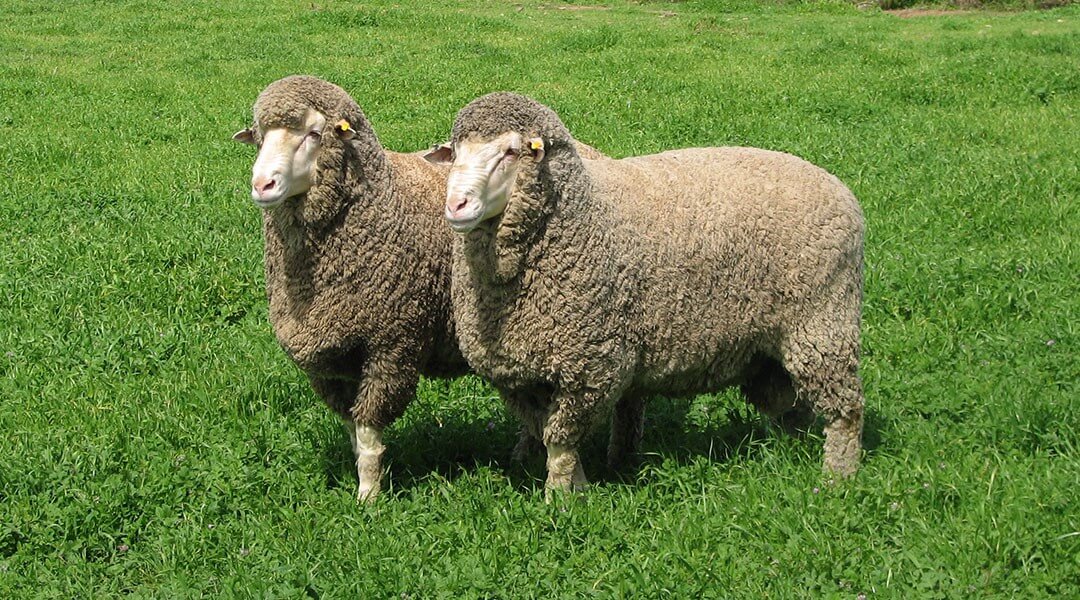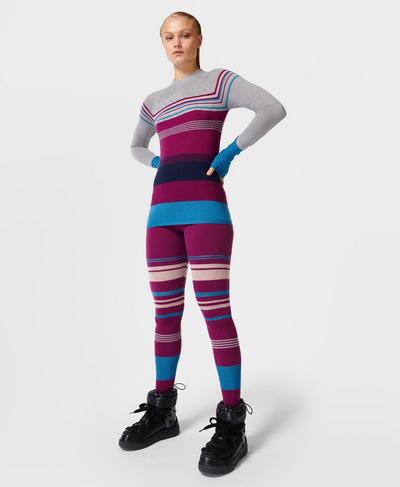There are many Merino breeds of sheep, each with its own characteristics and unique qualities. Here are the most popular Merino breeds and their distinct characteristics. Spanish Merino- This Merino breed is the oldest and most popular for its prolific production and its fine wool. This breed is adaptable to a range of conditions and also has a high resistance to diseases.
American Merino- The American Merino was first developed in the United States in the 19th century. It is famous for its fine wool and hardiness. The breed can withstand many common sheep diseases and is well-suited to cold climates.
Saxon Merino-The Saxon Merino Merino is a fine-boned Merino sheep breed that is famous for its soft and fine wool. This Merino breed is generally smaller than other Merino and is ideally suited to hot and dry environments.
Peppin Merino -- The Peppin Merino breed is an Australian breed which was developed in the 19th century. This breed is well known for its high-end wool quality and it is especially well-suited for Australia's heat and dry climate.
Rambouillet - Rambouillet is one of the Merino breed first created in France in the 18th century. The breed is well-known for its ability to adapt to various environments. Rambouillet wool is often rougher and more expensive than other Merino kinds, yet its qualities are still highly sought-after.
Polwarth - Polwarth, a Merino breed of sheep, was created in Australia in 1922. The Polwarth breed is adored by its silky and shiny fiber and is especially well-suited to cooler, wetter climates in south Australia.
The specific Merino breed and the setting in which they were raised will determine the distinct traits and qualities of Merino sheep. Breeders usually select for certain characteristics like fine wool, toughness and adaptability in order to develop innovative Merino breeds that are well-suited to different conditions and needs.

How Do 3/4 Length, Long Sleeve, Hooded And Zip-Neck Merino-Wool Base Layers Differ?
The numerous Merino wool base layers are available in a variety of lengths, which include 3/4, long sleeves, hooded and zip-neck. They each have distinct attributes and advantages. Here is a breakdown of the four different types of base layer. How do you choose the best 3/4-length Merino wool base layer. The base layer is worn under pants or shorts and is ideal for cool to moderate temperatures. They're a great option when you need an extra layer of warmth but don't require the full length of base layers.
Long Sleeve Merino wool base layers give warmth and comfort to the upper body. They are available in a variety of weights, making them a great choice for people who live in colder temperatures. If you are doing activities that have moderate or minimal intensity, the long sleeves as base layers are ideal.
Hooded Merino wool layer layers offer warmth and protection from the elements. They usually come with the option of a hood that is fitted and padded that can be worn with a helmet. Hooded base layers are the perfect choice for those activities that expose you to cold or wind.
Zip-neck Merino wool base layers made from Merino wool are ideal to control temperature and allow air circulation. They usually have the neckline of a zipper that is able to be opened or closed depending on the conditions. For sports that require fast temperature regulation, like high-intensity sports zip-neck base layers could be an excellent option.
Take into consideration the weather conditions and the activity level you are engaging in when choosing the right Merino wool base layer. 3/4-length base layers are ideal in mild to cool conditions. Long sleeves are the best for colder weather. Hooded base layers offer additional protection against wind and cold. Zip-neck base layers in activities that require rapid temperature regulation. Be sure that the base layer fits well and lets you move freely. Go explore koraoutdoor.com for thermal ski clothes for blog tips as well as merino base layer cycling, carhartt thermal shirt, mens grey thermal shirt, youth ski long underwear, black long john shirt, realtree cotton thermals, men's merino 150 base layer bottom, thermal underlayer mens, baabaa merino wool base layer, best heavyweight thermal underwear, with more- Best Hints For Selecting Base Layers For Skiing 3c7dfd6 and Great Hints For Choosing Ski Base Layers.
[img]https://www.rossignol.com/media/catalog/product/r/l/rllwj18_200_rgb72dpi_07.jpg?width\u003d850\u0026height\u003d850\u0026canvas\u003d850,850\u0026optimize\u003dhigh\u0026bg-color\u003d255,255,255\u0026fit\u003dbounds[/img]
Why Is Merino Wool Mixed With Himalayan Yak Wool An Excellent Base Layer To Ski On?
Merino wool as well as Himalayan Yak yarn are joined to form the perfect base layer ideal for skiing. Merino wool has a reputation for being extremely temperature-regulating, moisture-wicking, and soft. Himalayan Yak wool is well-known for its warmth and long-lasting. When these two fibers are blended, the result is a base layer that offers exceptional warmth, moisture management, and breathability, making it perfect for skis. The Merino wool is a great way to regulate body temperature and wicks moisture away from your skin keeping you cool and dry. Yak wool is an extra layer of insulation that can provide warmth in cold weather. The combination of Merino and yak wool is durable and impervious to wear, making it a great choice as an ideal base layer for intense activities such as skiing. Merino and Himalayan yak wool are paired to create an ideal base layer that offers warmth as well as moisture management and the ability to breathe. This makes it an ideal choice for skiing and other cold-weather activities. Go find ski thermals at koraoutdoor.com for website examples as well as tsla men's thermal wintergear, fruit of the loom waffle thermal, merino wool mens baselayer, men's pure silk long johns, american eagle mens thermal shirts, carhartt long underwear, blue thermal long sleeve shirt, 100 cotton thermal underwear, under silk brand long underwear, merino blend base layer, with more- New Suggestions For Picking Ski Mid Layers and Best Hints For Deciding On Ski Base Layers.

Merino And Himalayan Himalayan Yak Wool Is Superior To Cotton Polyester, Nylon, Fleece, And Other Alternatives To Skiwear.
Merino wool and Himalayan Yak wool are more effective than cotton, polyester nylon, and fleece for skiing clothing due to a number of reasons. Warmth- Merino wool as well as Himalayan Yak wool are efficient insulators that will keep you warm during frigid weather. Merino wool as well as Himalayan Yak wool are superior insulation. This is contrasted with nylon, cotton, and polyester which are too light.
Moisture management Merino wool or Himalayanyak wool excel in managing moisture. Both are naturally moisture-wicking. They draw moisture from the skin and then move it towards the outer layers, where it can evaporate. This is different from cotton, which absorbs humidity, and then becomes uncomfortable and heavy once it's wet.
Breathability Merino and Himalayan wools are very permeable, allowing air to circulate through the fabric. This assists in regulating body temperature, as well as prevents overheating. This is especially important for ski clothes since it helps you stay comfortable while you are skiing. Contrary to this nylon, polyester and fleece are less breathable and can hold in moisture and heat, making you feel uncomfortable and clammy.
Comfortand Comfort Merino wool and Himalayan yak wool are incredibly soft and comfortable, making them perfect for wear close to the skin. They are extremely flexible and stretchy that allows for complete movement and mobility. Although nylon, fleece polyester and nylon can be uncomfortable and restrict your mobility, they can also cause chafing and discomfort.
SustainabilitySustainable - Merino wool, Himalayan yak wool and other natural fibers are eco-friendly and biodegradable. They are therefore more eco-friendly than synthetics such as nylon or polyester, which are made with non-renewable materials that take a longer time to decompose.
Merino wool, also known as Himalayanyak wool have numerous advantages over cotton, nylon or nylon, as well as polyester or fleece for ski clothes. They are warm and durable, as well as water-wicking. They are breathable and comfortable. This makes them an ideal choice for anyone who wants to stay at ease during skiing. More- Recommended Info For Picking Base Layers For Skiing and New Suggestions For Choosing Merino Wool Base Layers.
